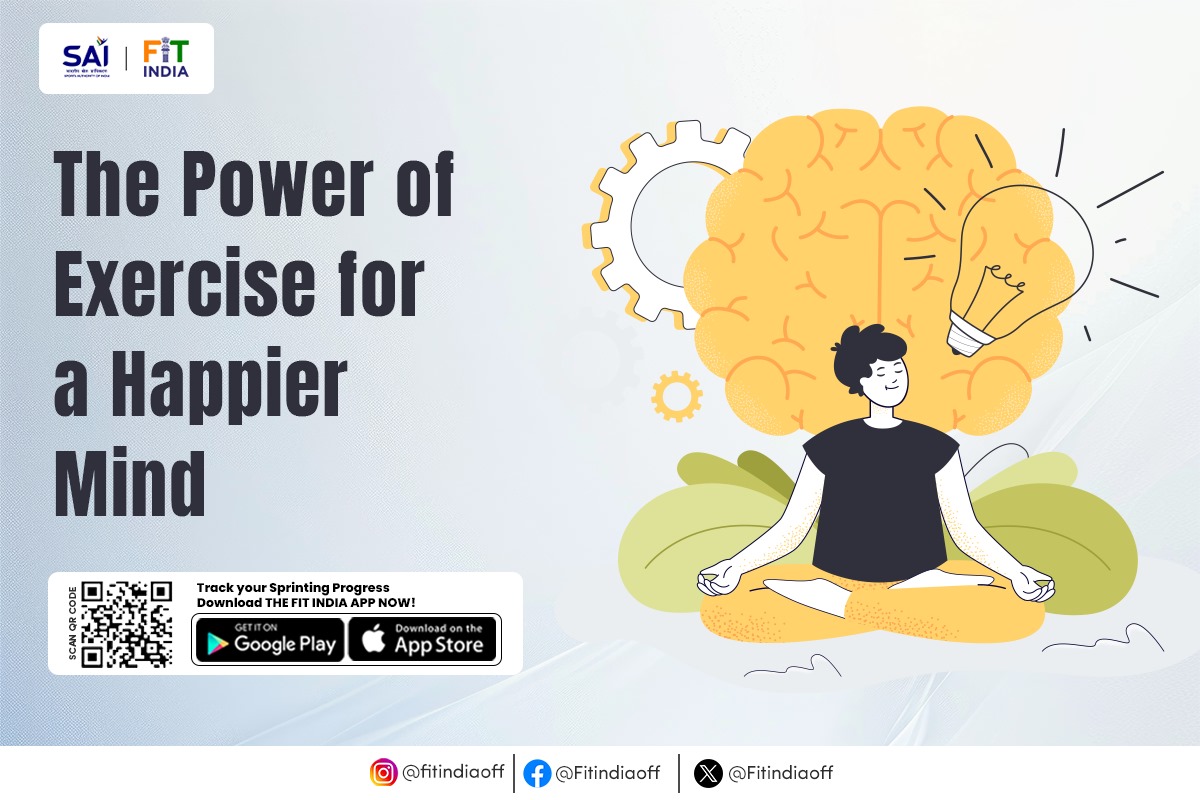<h2>The Powerful Link Between Exercise and Mental Health</h2> <p>In today’s fast-paced world, mental health has become a crucial aspect of overall well-being. While therapy and medication are commonly recognized solutions, physical activity is often an overlooked yet powerful tool for enhancing mental health. Research shows that regular workouts can significantly improve mood, reduce anxiety, and boost self-esteem. Let’s explore how different types of exercise can positively impact mental health and offer practical ways to incorporate them into your routine.</p> <p><strong>The Science Behind Exercise and Mental Health</strong><br> Exercise triggers the release of endorphins, often referred to as "feel-good" hormones. These natural chemicals promote a sense of happiness and well-being, helping to alleviate feelings of depression and anxiety. Additionally, physical activity increases blood flow to the brain, stimulating the production of neurotrophic factors that support brain health and cognitive function.</p> <p>Studies have also shown that engaging in regular exercise can reduce symptoms of anxiety and depression, improve sleep quality, and enhance overall resilience. The combination of physical movement, social interaction, and the achievement of fitness goals creates a powerful antidote to stress and emotional turmoil.</p> <p><strong>Types of Workouts for Mental Wellness</strong></p> <p><strong>1. Cardiovascular Exercise</strong><br> Activities like running, cycling, or swimming are excellent for boosting cardiovascular health and releasing endorphins. Even a brisk 30-minute walk can help clear your mind and elevate your mood. The rhythmic nature of cardio can also be meditative, allowing you to focus on your breath and thoughts. Consider joining a local running group or participating in virtual fitness classes to add a social element to your cardio routine.</p> <p><strong>2. Strength Training</strong><br> While strength training is often associated with physical gains, it can also play a significant role in mental health. Lifting weights or performing bodyweight exercises fosters a sense of accomplishment and boosts self-confidence. As you progressively lift heavier or master new exercises, you create tangible goals that can enhance your self-esteem. Try incorporating strength training into your routine two to three times a week, focusing on different muscle groups.</p> <p><strong>3. Mind-Body Practices</strong><br> Activities like yoga, Pilates, and tai chi blend physical movement with mindfulness, making them particularly effective for reducing stress and improving mental clarity. These practices emphasize breath control and mental focus, promoting relaxation and emotional regulation. Many online classes are available, allowing you to practice at home or join community classes for a supportive environment.</p> <p><strong>4. Dance and Movement Therapy</strong><br> Dancing is not just a fun way to exercise; it’s also a powerful emotional release. Whether you join a dance class or simply groove to your favorite music at home, dancing allows you to express yourself and elevate your mood. Movement therapy, which incorporates creative movement, can also be beneficial for those looking to explore their feelings and improve body awareness.</p> <p><strong>5. Outdoor Activities</strong><br> Nature has a calming effect on the mind, and exercising outdoors can amplify these benefits. Hiking, biking, or even practicing yoga in a park can boost your mood and reduce feelings of stress. The combination of physical activity and natural surroundings can enhance feelings of well-being, making outdoor workouts a fantastic option for mental health.</p> <p><strong>Tips for Incorporating Workouts into Your Routine</strong></p> <ul> <li><strong>Set Realistic Goals:</strong> Start with small, achievable goals that gradually increase in intensity. Celebrate your progress to maintain motivation.</li> <li><strong>Make It Social:</strong> Involve friends or family in your workouts. Group activities can provide support and accountability, making exercise more enjoyable.</li> <li><strong>Listen to Your Body:</strong> Pay attention to how different workouts make you feel. Choose activities that resonate with you and adjust as needed.</li> <li><strong>Prioritize Consistency:</strong> Aim for regularity rather than perfection. Even short, consistent workouts can have a significant impact on your mental health.</li> <li><strong>Explore Variety:</strong> Mix different types of workouts to keep things fresh and engaging. Trying new activities can reignite your passion for fitness.</li> </ul> <p>Incorporating workouts into your routine can be a transformative practice for mental health. By engaging in various forms of physical activity, you can elevate your mood, reduce anxiety, and foster a deeper sense of well-being. Remember, the journey to better mental health through exercise is unique for everyone—find what works for you and enjoy the positive effects it brings to your life. So, lace up those sneakers, find your rhythm, and let the power of movement guide you toward a brighter, healthier mindset!</p>



